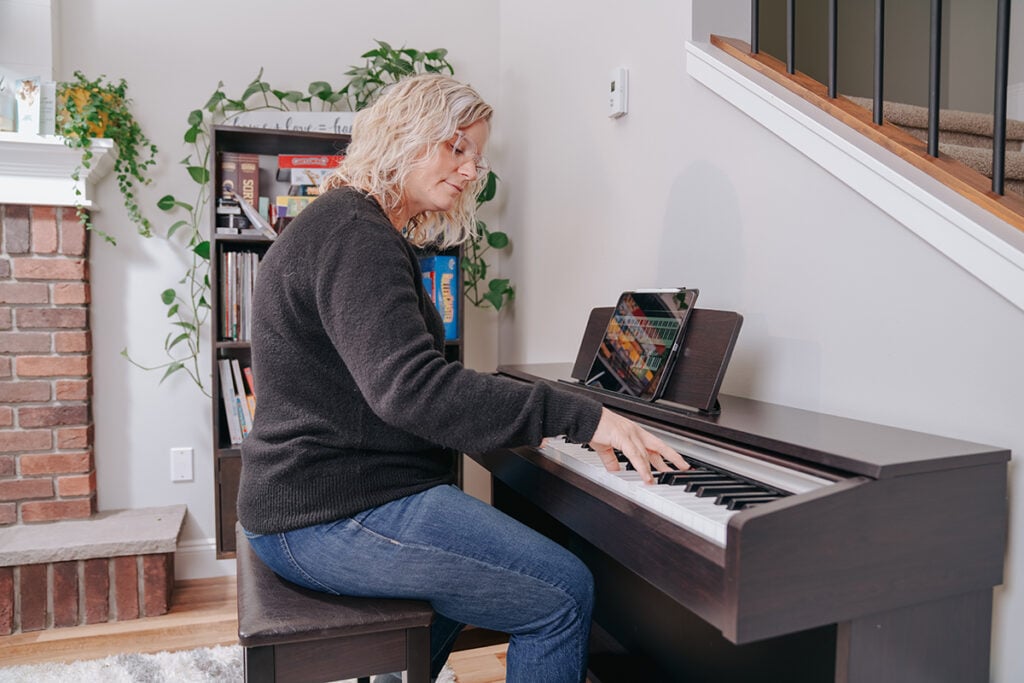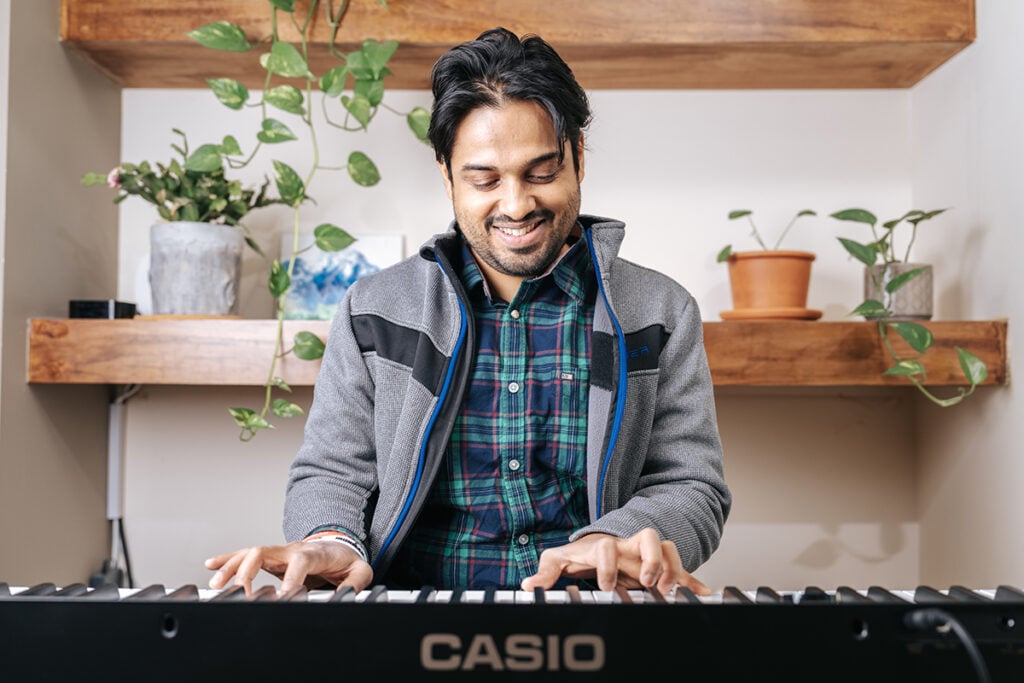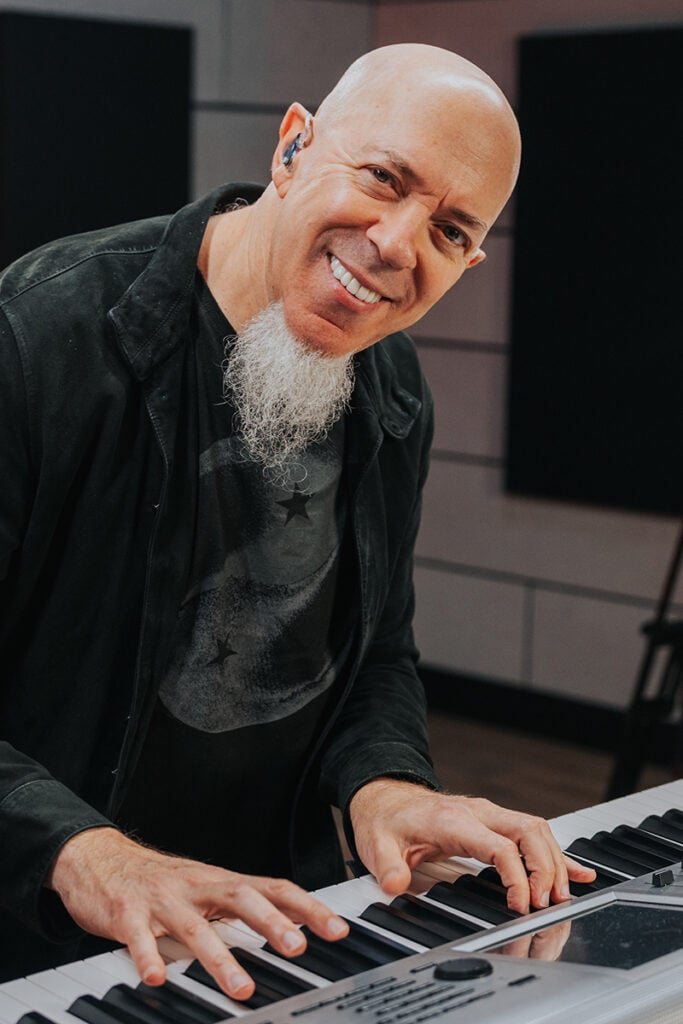
It’s a popular question among beginner piano players and while it’s a great question, it’s a difficult one to answer because individual pianists have different needs. So, how long should you practice piano each day?
In general, if you’re a novice to intermediate piano player, practicing 30-45 minutes a day nearly every day is a good rule of thumb. But let’s dive deeper into what this means and how to maximize your practice sessions, no matter how much time you have.
Table of Contents:
Get exclusive interviews, fascinating articles, and inspiring lessons delivered straight to your inbox.
First things first: not all practice is equal. You can play scales for hours on end, but you shouldn’t do it on autopilot. And you can put hours into playing a song you know really well, but that may not help you progress in other areas.
In general, it’s better to practice in a focused, goal-driven mindset for a short amount of time than it is to play mindlessly for a longer period.
As you progress in piano, your practice time will naturally increase. You’ll play longer songs and learn more complex techniques, but your endurance will also improve.
Based on our survey of more than 1000 piano players, we can comfortably make the following recommendations for daily practice time based on ability level:
The great Oscar Peterson once said he practiced eighteen hours a day in his youth. In general, the pros do practice a lot. But this depends.
For example, Adam Stout—a cruise ship pianist we interviewed here—admits he really doesn’t practice that much. Part of the reason is that pianos and private space are hard to come by on a cruise ship. But he also has enough experience to quickly interpret a chord chart or lead sheet on the spot. This is the culmination of years and years of training. (And probably years of practicing for many hours a day!)
So you see? Practice pays off! If you practice a lot now, you may be able to practice less later…

If you have a busy lifestyle, you may be tempted to block out a large chunk of time during the week to squeeze in all your piano practice. But this won’t be as effective as practicing a little bit every day. Scientific research supports the idea that learning things in short sessions over a longer period of time is more effective than cramming it all in one go. This is called the spacing effect.
Spacing out your practice sessions is also important because your brain actually does a lot of learning while it’s at rest. In one study, “researchers found that during rest the volunteers’ brains rapidly and repeatedly replayed faster versions of the activity seen while they practiced [the task]. The more a volunteer replayed the activity the better they performed during subsequent practice sessions, suggesting rest strengthened memories.” This was called “wakeful rest.”
You want to get better at piano, but you’ve got a full-time job, kids, aging parents, volunteering, maybe a night class… How can you possibly make time to practice with all this stuff going on?!
Well, you probably have five minutes every day. Everyone has five minutes! And while five minutes doesn’t seem like much, it’s better than nothing…by a lot. If you practice every day for five minutes each day, that’s 35 minutes a week. Which is nothing to sneeze at!

Sure, your progress will be much slower than the kid on summer vacation who can practice every day from morning until night. But you’ll still progress. (And have time to deal with your other responsibilities.)
And you’re not alone. In fact, Pianote is passionate about supporting folks like you! Here are some free lessons on getting the most of your practice session, that are 10 minutes or less:
More important than hours spent at the piano is enjoying your practice session. You should want to practice. The more you enjoy practicing, the more you’ll practice, and the better you’ll get!
Try not to see practice as homework but as an opportunity to connect with your instrument and the music you love. It’s how the pros see piano practice.
I want to be creative with everything that I’m doing. And when I’m practicing, I’m always thinking about how I can make this practice creative.
Jordan Rudess, GRAMMY-winning keyboardist for Dream Theater and Music Radar Keyboardist of the Year


Don’t think of practice as a chore or as work, but instead as a creativity lab where you have time, choice and freedom to discover.
Yuja Wang, GRAMMY winner and widely considered one of the best living classical pianists
The value of an exercise depends on your state of mind. If you don’t find it interesting, then it is not useful.
Madeline Bruser, author of The Art of Practicing
As a Pianote+ Member, you’ll get access to our 10-step Method, song library, and growing community of piano players just like you. Plus: get coached by world-class pianists and learn whenever you want, wherever you want, and whatever you want.
TRY PIANOTE FOR 7 DAYSCharmaine Li is a Vancouver writer who has played piano for over 20 years. She holds an Associate diploma (ARCT) from the Royal Conservatory of Music and loves writing about the ways in which music—and music learning—affects the human experience. Charmaine manages The Note. Learn more about Charmaine here.


By signing up you’ll also receive our ongoing free lessons and special offers. Don’t worry, we value your privacy and you can unsubscribe at any time.
We use cookies for traffic data and advertising. Cookie Policy »